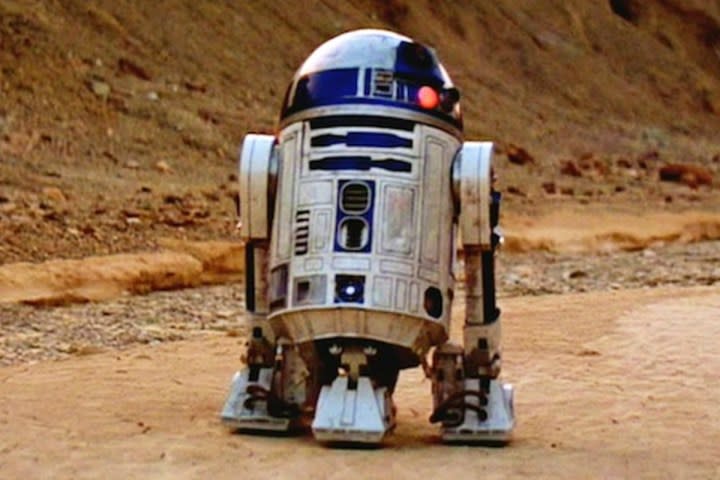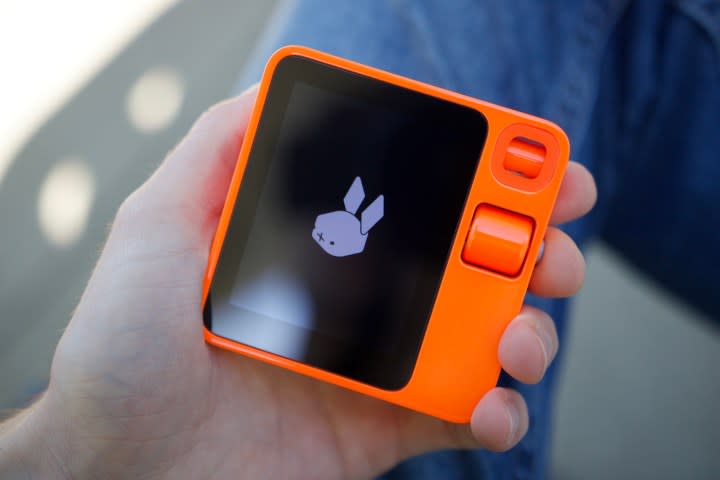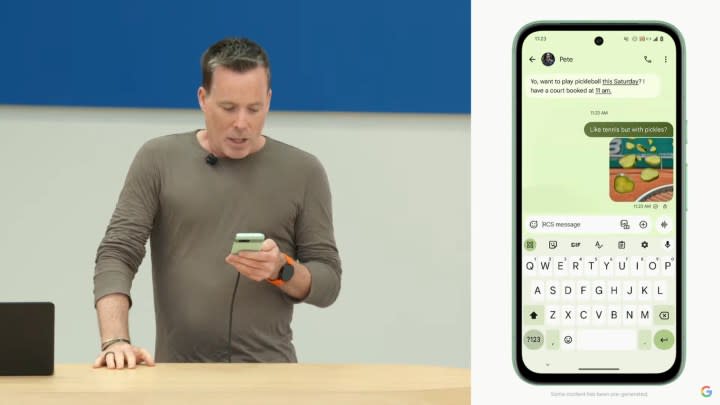Google’s new AI features look like my worst nightmare
The Google I/O 2024 keynote was AI-heavy. Very AI-heavy. We all knew it would be, but I went into it hoping the often-exciting company would show me what I really wanted: AI with personality. Alas, once again, the AI on show all did a variation of the same old things, with absolutely no fun, excitement, or joy in it at all.
This was absolutely when Google needed to roll out its very own version of R2-D2 at I/O to fire up our imaginations about AI, given the overload about it recently. But what we got instead was the computer from Star Trek, and oh, how monotonous and uninspiring it was.
Google’s AI life is not my life
Google’s Gemini AI makes lists, helps with coding, searches, summarizes, and organizes. It can create spreadsheets from receipts I’ve been emailed and can create an entirely-too-exact schedule for a vacation. I can give it access to PDFs and it will search and explain them, and it can use spreadsheets to show profits from the “side hustle” I don’t have or want. Search, research, condense, clarify, plan, explain, brainstorm, repeat. That’s Google’s AI, and what’s worse is there’s not one tool for doing this, there are dozens.
Google spent more than 90 minutes explaining these apparently identical tools using slightly different words and slightly different examples to try to fool us that we were seeing something new each time. Sure, there were a few creative examples, plus some sad, unfunny AI nonsense about photos of cats playing guitars. But underneath it was still all the same features at work, doing essentially the same thing. I couldn’t begin to tell you the difference between any of them or imagine when I’d use them, as there are only so many times I need to organize something in such minute detail and in double quick time.
Worse, the examples had the desperate whiff of shampoo commercials about them. They show aspirational lifestyles that are detached from my own, and because all the features being explained are basically the same and a bit boring, I can never imagine myself in the situation because it’s such a stretch. Google wants me to picture using its AI shampoo, so I’ll suddenly cry out for an AI assistant to organize my (imaginary) vacation or to work out those massive profits from that second job I’ll suddenly have time to take on. But it’s impossible to get from point A to point B because, behind it, the AI portrayed is entirely soulless — devoid of personality and shockingly dull.
Clever but boring
What Google is achieving with Gemini is amazing, and what it can do is undoubtedly impressive, but where is the AI with personality? Where is the AI that I want to use, that I love interacting with, and that wants to talk to me? Simply, where is Google’s R2-D2? The most well-known and popular droid from the Star Wars universe gets a lot of stuff done, but it’s also Luke Skywalker’s trusted friend and companion. If R2’s not projecting video messages or hacking Imperial computers, it’s cracking a joke, being heroic, or just plain emoting. R2-D2 is a (fictional I know, I’m not deluded here) robot and presumably uses some kind of AI, but it still has personality. Why can’t Google’s AI be this much fun?
It’s all I could think about when Gemini was shown busily searching a Gmail account for the umpteenth time. Admittedly Google’s Deepmind Project Astra does look great, with the fast, conversational AI chatbot demonstrated appearing fun to use. It was interesting to hear that achieving this level of quick interaction is hard, but once again, there was a lot of show-and-tell from the AI going on in the demo, and I can’t put myself in a situation where I’d ever do this more than a few times in real life. You really need to show me why I should care about all this, Google.
Why? Because I care about R2-D2 and I don’t care about Gemini, and that’s the problem. Perhaps I’m alone here, and everyone else wants an organizational tool and not an AI companion, but I believe Google and other firms pushing AI need a fun, interactive, engaging piece of hardware to go along with all the logistical and administrative tedium.
It will help bring AI alive and show how transformational it could be in a truly futuristic, sci-fi way. I don’t spend all my waking hours wanting to get things done, Google, and that’s why your AI bores me.
Where is the great AI hardware?
It’s not just Google struggling with this concept. Hardware with AI at its core has hit the headlines a lot recently, with the Humane AI Pin and the Rabbit R1 being the most interesting and widely discussed. I very quickly learned the Humane AI Pin was never going to be my artificially intelligent friend, as it is far too serious for such frivolity, but the Rabbit R1’s fun hardware and cute logo gave me hope it would have sufficient personality to engage me.
However, after seeing the disappointment on Digital Trends Mobile Editor Joe Maring’s face during the time he was reviewing the R1 and hearing how it struggled with even basic commands, I lost a bit of enthusiasm. I want my artificially intelligent pal to at least be competent; if it fails to serve a purpose, then any personality it may have won’t really matter if Alexa, Siri, and Assistant can all do better.
But before AI became as powerful as it is now, companies were out there making the right hardware, just not quite with the right software intelligence. My personal favorite is the amazing Gatebox with its cute, customizable avatar that would greet, chat, and engage with you and even send messages to your phone during the day that would prompt a simple conversation. I was also excited about Neon’s artificial humans at CES 2020 before they disappeared without a trace and Buddy the house robot back in 2018, and it’s why apps like Nomi, Xiaoice, and Replika are so enticing.
Personality goes a long way
Google could make a brilliant version of the Rabbit R1, its own Gatebox-style device, or with its deep pockets, any kind of home robot it liked — but it chooses not to. It’s so frustrating to see the company that brought us futuristic and fun hardware like Google Glass be so caught up in productivity, efficiency, and efforts to keep us busy and working. In doing so, it’s squandering a chance to make what is the most radical software innovation we’ve ever seen actually thrilling, which is a crazy statement on its own.
I want AI that’s more than a tool. I want an AI friend that gets things done, a companion for when I’m bored or lonely, and to see the type of sci-fi hardware that shaped my childhood become reality using this astonishing technology. I’m sure it’s very difficult, but there are examples in existence that come close to that dream already, so why must Google choose only the most soulless, interchangeable examples to show it off all the time?
At the end of the keynote, Google CEO Sundar Pichai gleefully said the phrase AI was used more than 120 times throughout the presentation and that, of course, it used AI to keep count. I know it was supposed to be a knowing in-joke, but it was also a painful reminder that despite so many mentions, very little about what was said around it was actually memorable. It hammered home that, at the moment, AI really is just another bland tool and a depressingly wasted opportunity.









